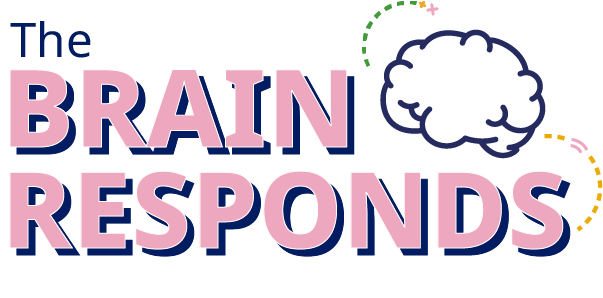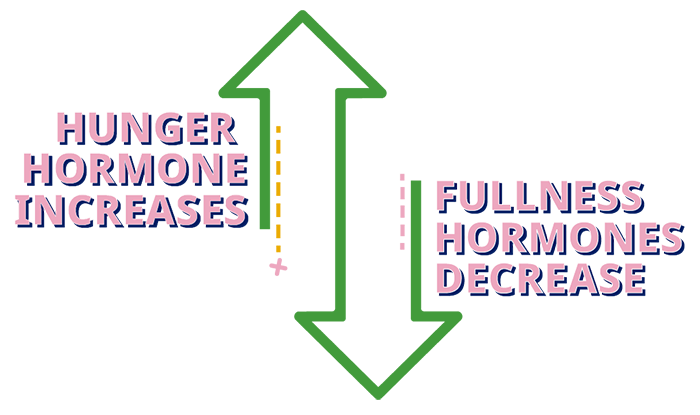Your Body’s Response to Weight Loss Makes It Hard to Maintain Your Progress

The tug-of-war of weight management
Losing weight and maintaining it is hard because of how the body responds to weight loss: After losing weight, the body tries to put it back on. While healthy eating and increased physical activity are important, for many people they may not be enough to keep the weight off.
Why is it so hard to keep the pounds off? Well, there’s more to weight management than meets the eye. People may see results when they limit calories, by reducing the size of meals, for example. And find ways to increase physical activity, like taking regular walks around the block. Science has shown the body responds in surprising ways when a person loses weight. It reacts to weight loss by trying to regain weight, making weight management a constant tug-of-war. Metabolism slows down and gets more efficient, requiring fewer calories to do its job. Hormonal signals can also change. The body increases a hunger hormone, called ghrelin, which tries to get you to eat more calories. And the hormones that tell the brain it’s time to stop eating, the “feeling full” signals, decrease. These are just some of the factors that make weight regain so common.
Appetite hormones in the body can make weight management as challenging as actually losing the weight.

Did you know the brain is responsible for when and why we eat?
It’s true. All day, the nervous system, which includes the brain, receives signals about appetite from hormones that come from different parts of the body, like the stomach, intestines, and fat tissue. Both the brain and these appetite hormones contribute to what, why, and how much we eat.

Our brain responds to appetite hormones that say we need energy—sometimes even when we don’t.
"I’m hungry. I should eat now."

Other times, even when we’re not hungry, signals to our brain may cause us to eat for pleasure.
"Dinner was great and I’m full, but now I want something sweet."
"My friends are going out to eat and I don’t want to feel left out."

Reacting to hunger, pleasure, and other impulses, the brain works out what action to take.
“I feel hungry, but didn’t I just eat?”
“I’ll have a salad. Maybe that will take care of my hunger.”
Remember the appetite hormones we talked about earlier? For people trying to lose weight and maintain it, changes in these hormones after weight loss can make things tricky.
That’s because after we lose weight by eating fewer calories, our levels of appetite hormones, including peptide YY (PYY), cholecystokinin (CCK), glucagon-like peptide-1 (GLP-1), amylin, insulin, and leptin, can change and contribute to weight regain.


Do you know the truth about treatment for excess weight?
Partnering with a health care provider, rather than trying to lose weight on your own, may help your chances of success. Take this short quiz to find out how much you know about the role a health care provider can play in your weight management.
Most people have no problem maintaining weight loss once they achieve it.
Correct! Maintaining a healthy weight is difficult because of how the body responds to weight loss. Only 1 in 10 people is able to keep weight off for more than 1 year. Partnering with your health care provider may help you achieve success. If you want to find a health care provider who specializes in weight management, use the Obesity Care Provider tool on this website.
Oops! Not quite. In fact, only 1 in 10 people is able to keep weight off for more than 1 year. How the body responds to weight loss makes it difficult to maintain, but partnering with your health care provider may help you achieve success. If you want to find a health care provider who specializes in weight management, use the Obesity Care Provider tool on this website.
Most health care providers believe they shouldn’t need to actively contribute to a patient’s weight-loss efforts.
Correct! In fact, 7 in 10 health care providers believe that they should actively contribute to their patient’s weight-loss efforts. You may find that your health care provider has not been as proactive as you’d like. When this happens, it can be helpful to make the first step. If you'd like to find a provider near you who specializes in weight management, the Obesity Care Provider tool on this website can help.
Oops! Not quite, 7 in 10 health care providers believe that they should actively contribute to their patient's weight-loss effort. You may find that your health care provider has not been as proactive as you'd like. When this happens, it can be helpful to make the first step. If you'd like to find a provider near you who specializes in weight management, the Obesity Care Provider tool on this website can help.
People who partner with a health care provider can lose 5x more weight than those who follow a self-directed program.
Correct! Advice from health care providers has been proven to have a positive impact on weight-management efforts. In 1 study, people who partnered with a health care provider lost 5x more weight than those who did not. While healthy eating and physical activity are important, they may not be enough to keep weight off. You can help manage this by adding on other types of treatment, such as counseling, prescription medicines, or bariatric surgery that can help make your plan even more effective.
Oops! Not quite. There was 1 study that showed people who partnered with a health care provider lost 5x more weight than those who did not. Advice from health care providers has been proven to have a positive impact on weight-management efforts. You can also talk to your health care provider about different types of treatment, including counseling, prescription medicines that have proven to be effective for weight loss, or bariatric surgery.
Bariatric surgery is the only medical treatment option available to help people manage excess weight.
Correct! There are treatment options today to help people with excess weight including lifestyle changes and prescription medicines. Since weight loss can slow down metabolism and impact appetite hormones that make you feel hungrier and less full, adding a prescription medicine that can help decrease appetite or increase fullness may be an option. You and your health care provider can explore treatment options to develop a weight-management plan that works for you. The TrueWeight® Report on this website can help you start the conversation.
Oops! Not quite. Bariatric surgery is not the only option to manage excess weight. Since weight loss can slow down metabolism and impact appetite hormones that make you feel hungrier and less full, adding a prescription medicine that can help decrease appetite or increase fullness may be an option. There are several prescription medicines for weight loss and weight management that have been proven effective in clinical trials. Use the TrueWeight® Report on this website to start the conversation and develop a plan that's right for you.
There are many treatment options available that can help people lose excess weight.
Correct! Treatment for excess weight usually begins with healthy eating and physical activity. But this may not be enough to keep the weight off for some. There are also several prescription medicines for weight loss and weight management. You can discuss what treatment is right for you with your health care provider.
Oops, not quite. Treatment for excess weight usually begins with healthy eating and physical activity. But this may not be enough to keep the weight off for some. There are also several prescription medicines for weight loss and weight management. You can discuss what treatment is right for you with your health care provider.

Team up for success
Work with a health care provider to discuss treatment options like reducing calories through healthy meal planning, increased physical activity, counseling, prescription medicines, or bariatric surgery.




